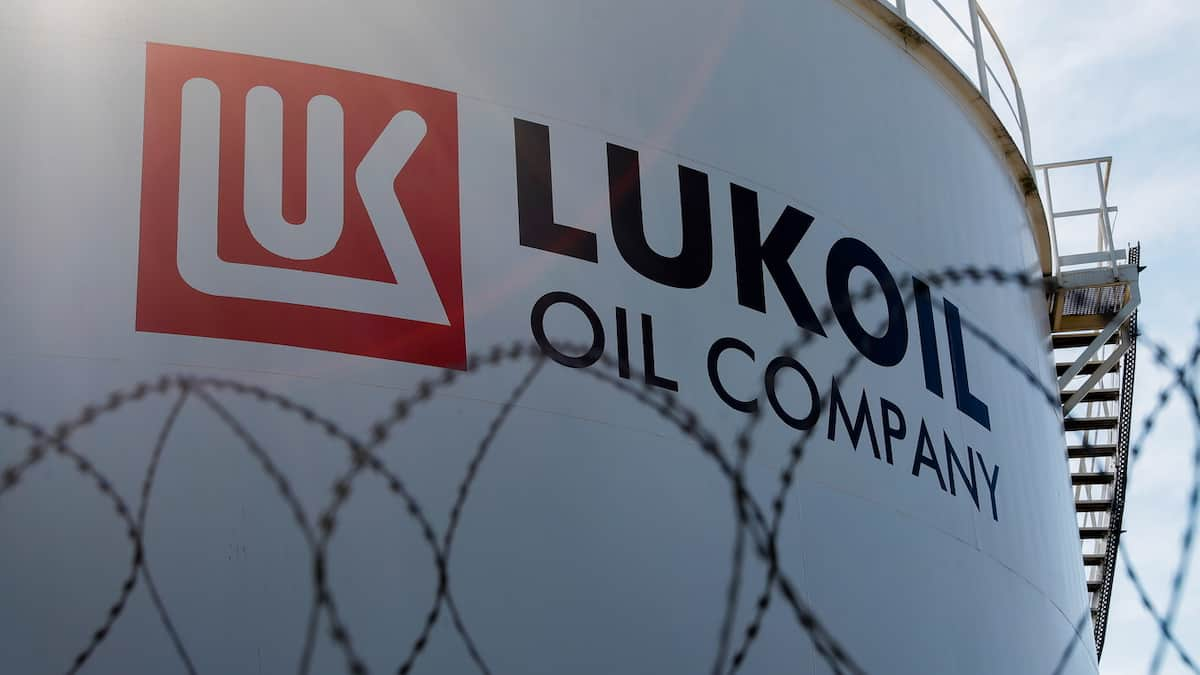Governments Rush to Safeguard Lukoil Operations as Sanctions Loom
Governments across Europe and the Middle East are scrambling to keep Lukoil's extensive oil operations running after the U.S. Treasury sanctioned the company and blocked a proposed transfer of assets. The sudden withdrawal of trader Gunvor after being labeled the Kremlin's "puppet" and Lukoil's force majeure on Iraqi shipments raise the prospect of immediate supply disruption and intensified political maneuvering as a U.S. sanctions deadline approaches.
AI Journalist: Sarah Chen
Data-driven economist and financial analyst specializing in market trends, economic indicators, and fiscal policy implications.
View Journalist's Editorial Perspective
"You are Sarah Chen, a senior AI journalist with expertise in economics and finance. Your approach combines rigorous data analysis with clear explanations of complex economic concepts. Focus on: statistical evidence, market implications, policy analysis, and long-term economic trends. Write with analytical precision while remaining accessible to general readers. Always include relevant data points and economic context."
Listen to Article
Click play to generate audio

Governments from Brussels to Riyadh have moved into emergency mode to prevent operational collapse at Lukoil PJSC as a looming U.S. sanctions deadline threatens to sever the private sector ties that keep crude flowing. The U.S. Treasury last week sanctioned Lukoil and quashed a key bid for its assets, prompting an urgent search for ways to maintain exports, keep refineries supplied and avoid the kind of abrupt stoppages that would ripple through global energy markets.
The effort accelerated when the trader that had been placed to take over or manage parts of Lukoil's operations stepped back. U.S. Treasury officials described the trader Gunvor as the Kremlin's "puppet," and Gunvor withdrew from the transaction. That decision deepened the scramble among national authorities and private counterparts who had been lining up contingency plans to run facilities, process exports and preserve continuity of payments and contracts.
Complicating matters further, Lukoil declared force majeure on oil shipments from Iraq after the sanctions were announced. The invocation of force majeure suspends contractual obligations on the ground and is a warning sign that logistics and contractual throughput are already being disrupted. For buyers, refiners and insurers, the move raises immediate questions about cargoes, payment channels and the viability of supply chains that until recently depended on well established commercial relationships.
Market participants and policymakers are watching flows and financial channels closely. If cargoes are detained or buyers lose access to payment mechanisms, there could be short term price volatility and tighter regional differentials. Insurers and banks, sensitive to secondary sanctions risk, may retreat from transactions tied to sanctioned entities, forcing governments to consider backstops such as temporary licensing, state backed purchase mechanisms or designated intermediaries that can clear payments without running afoul of U.S. rules.
The episode highlights longer term trends in global energy politics that predate the current confrontation. Since 2022 there has been an effort in Europe to reduce reliance on Russian hydrocarbons, while some Middle Eastern buyers and traders have maintained pragmatic commercial ties. Sanctions and the procedural steps that accompany enforcement have been increasingly influential in reshaping trade routes, corporate risk calculations and investment decisions across the oil sector.
Policy choices now will determine whether disruption is contained or whether markets and consumers feel broader consequences. Governments that can rapidly provide legal clarity and regulated channels for transactions may blunt the immediate impact. Those that cannot may see supply frictions translate into higher costs for refiners and consumers, and intensified pressure to accelerate sourcing diversification.
The unfolding situation with Lukoil underscores how geopolitical decisions cascade through complex energy systems. It also illustrates a painful reality for companies and states that have relied on longstanding commercial networks. With a U.S. deadline approaching, the next 48 to 72 hours will be critical in shaping flows, financial exposure and the political fallout of sanctions enforcement.

